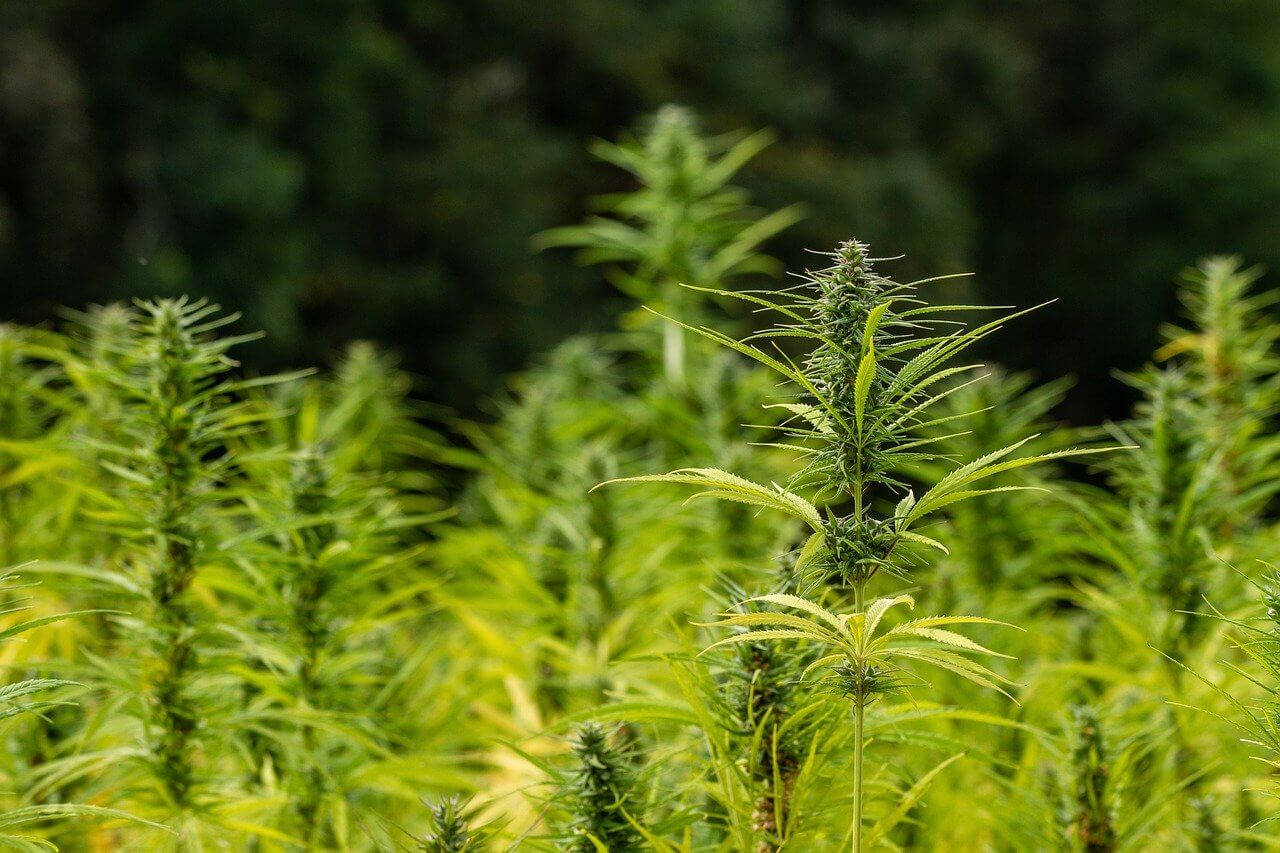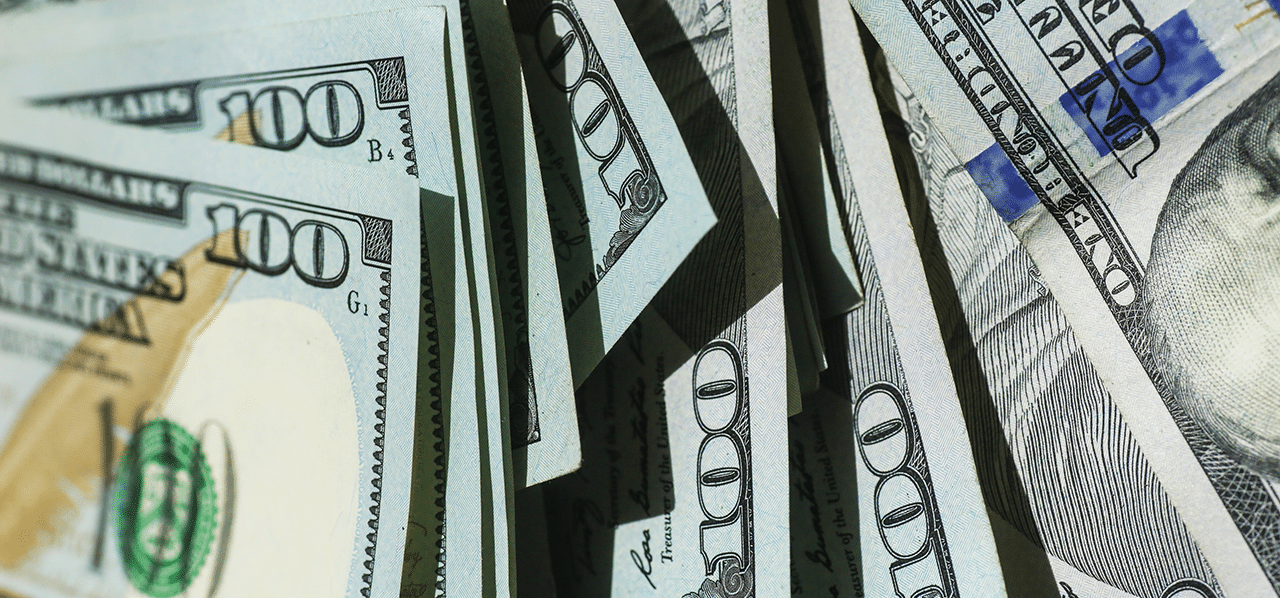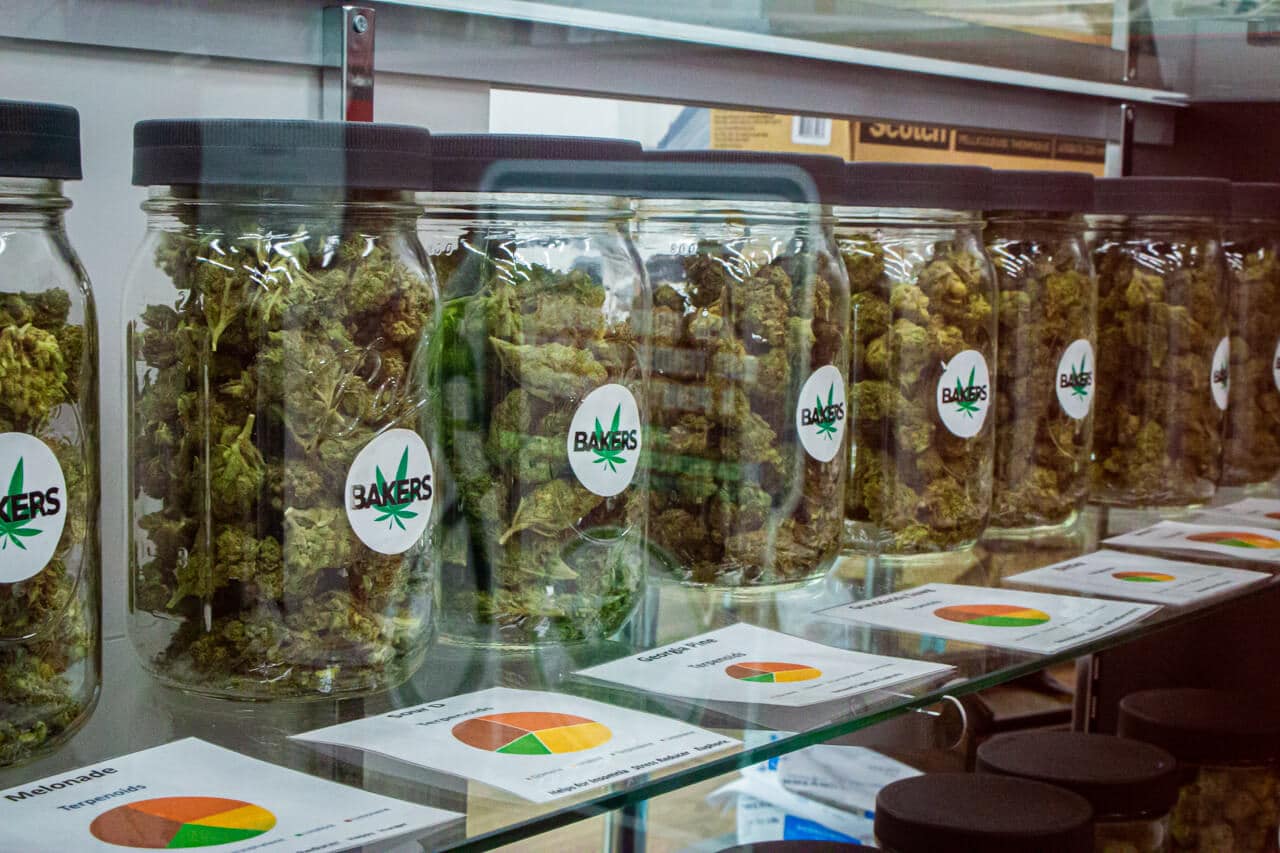![[Denver Post] Oklahoma is the new “Wild West of weed” — and Colorado marijuana entrepreneurs are helping fuel the green rush](https://therealdirt.com/wp-content/uploads/2021/08/TDP-L-Oklahoma-cannabis-RJS-31799.jpeg)
by The Real Dirt | Aug 16, 2021 | 420 Culture & Travel, Blog, Business, Cannabis Business, Cannabis Law, Cannabis Law and Compliance, Culture, Denver Post, Growing, Industry News, Legalization, Medical Marijuana
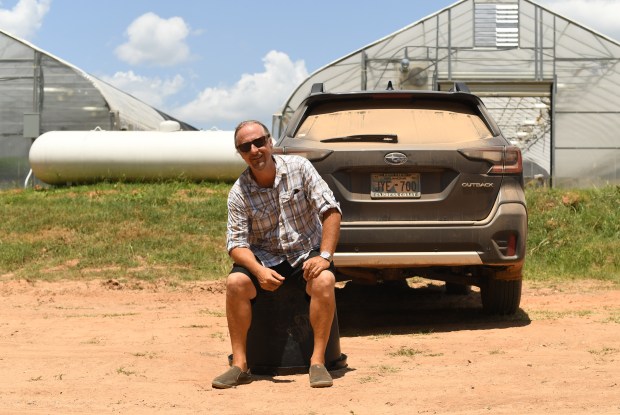
Lax regulation and low barriers to entry have triggered cannabis’s explosive growth in Sooner State
OKEMAH, Okla. — Chip Baker surveyed a vast field on the outskirts of an old hay farm an hour east of Oklahoma City, his ponytail waving in the thick, humid air, his voice growing excited.
“This is probably the largest collection of Squirt in the world!” he boasted, pointing to an array of neatly plotted cannabis plants before him that will soon flower pounds of the popular strain.
Baker would know. From the time he planted his first marijuana plant at 13, he’s been all about growing weed. A dream formed in the Georgia fields took him to Humboldt County, California — the nation’s earliest pot epicenter — then Colorado, the country’s first recreational market.
But it’s here in rural Oklahoma, down a dusty dirt road along the banks of the North Canadian River, where true cannabis cowboys — including droves of Colorado entrepreneurs like Baker — are buying mammoth properties to grow mammoth numbers of plants, all in a quest for mammoth stacks of kush-derived cash.
It’s a place unlike virtually any other in America.
“Other states grow patches,” Baker said with a grin, taking in the 90-acre, 40,000-plant cannabis farm before him. “In Oklahoma, we grow fields.”
The Sooner State, as deeply red as the American political palette will go, has almost overnight become the hottest place in the country to grow marijuana. It’s an unprecedented look at what happens when the government stays largely out of the picture and lets the free market run wild.
And Colorado businesses are pumping their sizeable dollars and cannabis expertise into the state, hoping to cash in on what Baker and others in the industry call the next green rush.
“It’s the Wild West of weed,” he said, “in all its glory.”

by The Real Dirt | Aug 10, 2021 | 420 News, Blog, Business, Cannabis Business, Cannabis News, Culture, Industry News
In a historic year for Washington companies going public, Seattle-based Leafly, an online cannabis marketplace, will push the 2021 total even higher.
The company announced Monday it will go public through a special merger with New York-based Merida Merger Corp (Nasdaq: MCMJ). The transaction is expected to value Leafly at $385 million and add approximately $161 million of additional proceeds to the company.
The combined company will adopt Leafly’s name, and is expected to trade on Nasdaq with the ticker symbol “LFLY.” The company said it will list its shares once the merger is complete, likely sometime this fall.
According to PitchBook, 15 companies in Washington have gone public in 2021 so far, five more than last year’s total, and the most the state has seen in the last five years.
“Online retail shopping is in our DNA,” said Yoko Miyashita, CEO of Leafly, in an interview. “What you see is … this realization from consumers that say ‘Oh, (cannabis) is like any other retail product I can order online.”
Leafly earned $36 million in revenue last year, up from $30 million in 2019, according to its investor presentation. This year, revenue is expected to increase to $43 million, and grow roughly 50% annually through 2024.
Still, the company does not expect to be profitable until 2024, predicting it will lose at least $15 million in net income from 2021 to 2023.
The company makes money mostly through subscription fees it charges cannabis retailers who list their menus on Leafly’s platform. Customers place orders with retailers through the online site, but still have to go to the cannabis shop in person to pick up their product. Leafly does not take a commission from each transaction but does make money off ad sales from retailers.
The company said it has 4,600 paying retail subscribers, with approximately 55% of North American retail cannabis licensees on its platform and 125 million annual visitors.
Miyashita said cannabis retailers are “constrained” in their ability to advertise on major social media networks because of federal prohibition laws. Leafly’s platform, giving retailers and consumers an opportunity to reach each other, is “huge,” she said. “We have one of the largest audiences in cannabis.”
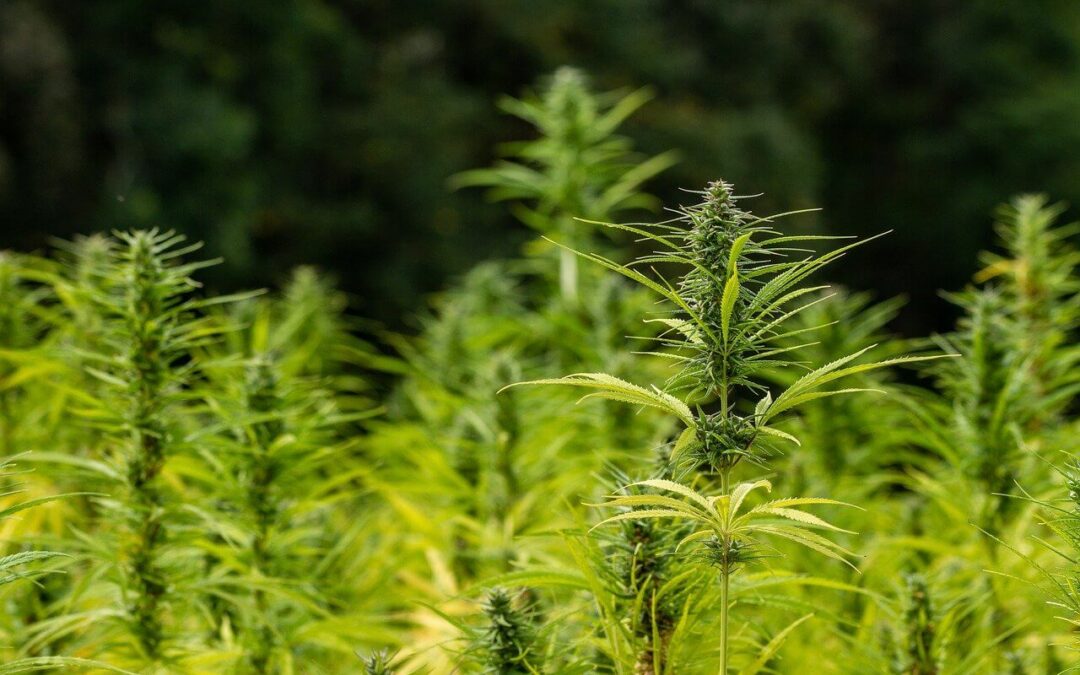
by The Real Dirt | Aug 6, 2021 | Blog, Business, Cannabis Business, Cannabis Law, Cannabis Law and Compliance, Cannabis News, Hemp, Hemp Law
An appeals panel in Texas issued a mixed judgment Thursday in a lawsuit challenging the state’s ban on smokable hemp. Regulators may enforce a ban on the processing and manufacture of products intended for smoking or vaping, the court ruled, but it cannot prevent such products made elsewhere from being sold in the state.
The decision creates a situation in which consumers may be able to freely purchase smokable hemp flower and hemp-derived CBD oils for vaping, but only if the products are produced outside Texas.
Four Texas companies challenged the ban in a lawsuit last year, asking the court to declare the restrictions unconstitutional and allow hemp products intended for smoking or vaping to be produced and sold legally. In response, a state judge eventually put the entire ban on hold, preventing the government from enforcing it until the matter could be resolved in court.
In Thursday’s ruling, a three-justice panel of the Third District Court of Appeals drew a distinction between the processing and manufacturing of smokable hemp—which lawmakers strictly prohibited its production when they legalized hemp in 2019—and distribution and sales, which regulators at the Texas Department of State Health Services (DSHS) forbade under a rule adopted a year later.
Writing for the panel, Justice Melissa Goodwin reasoned that lifting the ban on product sales was justified because the DSHS restriction went beyond the scope of lawmakers’ manufacturing ban.
“The Legislature required that the Department’s rules must reflect the principle that ‘the processing or manufacturing of a consumable hemp product for smoking is prohibited,’ but did not mention retail sale,” the judgment says. “Nevertheless, the Department adopted a rule that banned not only the processing and manufacturing of consumable hemp products for smoking, but also the distributing and retail sale of such products.”
On the other hand, the panel’s ruling will allow lawmakers’ ban on production and manufacturing of smokable hemp products to take effect. Thursday’s ruling reversed a lower court’s decision to prevent the state from enforcing that part of the ban.
“Because the Hemp Companies never provided ‘a plain and intelligible statement of the grounds’ to enjoin the enforcement of rule 300.104’s bans on manufacturing and processing consumable hemp products for smoking, we conclude that the trial court abused its discretion in granting the temporary injunction and enjoining the enforcement of that portion of the rule,” Goodwin wrote.
Advocates in favor of broader legal access to cannabis products emphasized the significance of the court’s decision to allow smokable hemp to be sold in the state. But they lamented the fact that in-state manufacturing of the products will remain illegal.
“The reversal of the ban on distributing and selling smokable hemp products is a big win for Texas farmers and hemp businesses. It is extremely important that regulatory overreach is kept in check so that Texas companies are not prevented from excelling in this market,” Jax Finkel, executive director of Foundation for an Informed Texas, told Marijuana Moment on Thursday. “I am hopeful that manufacture portion of the suit will end in a similar opinion.”
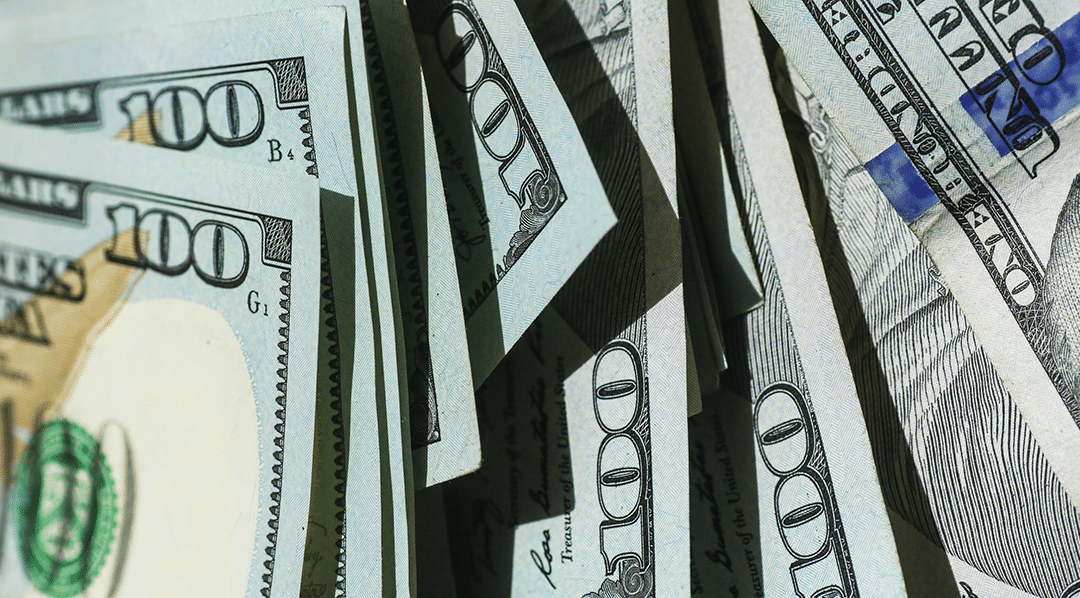
by The Real Dirt | Aug 5, 2021 | 420 News, Blog, Business, Cannabis Business, Cannabis Law, Cannabis Law and Compliance, Cannabis News, Industry News, Legalization, Politics
State law doesn’t prohibit the new licensees from unloading for millions of dollars and potentially “giving it away to the white boys again,” one critic said.
The applicants waited for more than a year for a chance to jump into Illinois’ booming weed industry.
But now that they have won lucrative cannabis licenses to open marijuana dispensaries, craft grow operations or other related businesses, some could sell the licenses before ever opening up — potentially collecting millions in the process.
With the state’s troubled cannabis licensing process careening toward a conclusion, corporatized weed firms and other cash-rich buyers are now expected to go after the new licenses — many of which are slated to go to so-called social equity applicants, a designation created to boost diversity in the lily-white weed industry.
Rickey Hendon, a former state senator who won a dispensary license in last week’s lottery, acknowledged he and other companies are now entertaining a host of proposals to sell to owners with deeper pockets. A court order in a pending lawsuit has, however, blocked the formal issuance of the pot shop permits for now.
“Of course some of the smaller companies are listening to all kinds of offers,” said Hendon, who became a de-facto spokesman for social equity candidates after they were shut out of the initial licensing process a year ago. “I’m listening to all kinds of offers.”
Hendon, who said he is merely exploring his options, believes a cannabis license could fetch between $3 million and $15 million, depending on which statewide region it allows a buyer to set up shop.
An industry source, however, estimated that each of the 185 new pot shop permits is likely worth much less, between $1 million and $3 million. The source pegged the going rate at $4-$5 million for each of the 40 new craft cultivation licenses, which were announced last month along with other permits to infuse and transport cannabis products.
But critics say the potential massive selloff goes against the spirit of the legalization law and the recent trailer bill Hendon helped write, both of which went to painstaking lengths to give people of color ownership in the highly profitable industry. What’s more, some fear predatory forces will attempt to take advantage of social equity firms trying to turn a quick profit.
Edie Moore, a fierce proponent of diversifying the industry who serves as the executive director of Chicago NORML, a marijuana advocacy group, couldn’t hold back her frustrations about the prospect of social equity firms now dumping cannabis licenses so many in the state fought hard to get to them.
“I’m not upset for people who want to get a payday. But I thought that they had got into this business to be in this business, not to just make a quick buck,” said Moore, who helped write the latest pot law and has already won a dispensary permit.
“That’s what we were fighting for,” she added. “For people to build generational wealth on owning and building and creating something within their communities, not giving it away to the white boys again.”
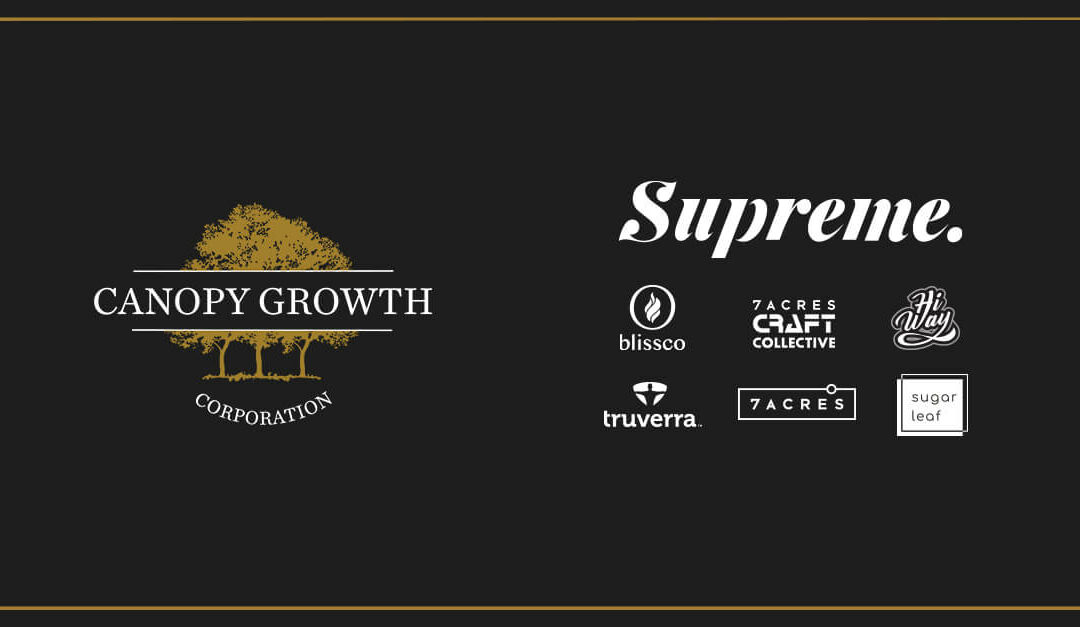
by The Real Dirt | Aug 4, 2021 | Blog, Business, Cannabis Business, Cannabis News, Industry News
Executives for cannabis producer Canopy Growth received more than 4 million Canadian dollars ($3.2 million) in cash bonuses after making “solid progress in the year,” according to a regulatory filing, even as the company lost CA$1.7 billion and laid off hundreds of workers.
The Smiths Falls, Ontario-based company disclosed the executive compensation figures for fiscal year 2021 in a proxy statement sent ahead of its annual general meeting, scheduled for Sept. 14 via webcast.
The executives’ compensation packages consist of salary as well as bonuses awarded as part of the company’s short- and long-term incentive plans. For fiscal 2021, which ended March 31, the board approved short-term incentive plan bonuses totaling CA$4 million for five of the company’s top executives.
The company’s long-term incentive-plan (LTI) bonuses, typically granted annually in March, were awarded June 9, 2021. The LTI bonuses were not reported in the total compensation table because they were issued after the fiscal year ended.
“On a go forward basis, we have determined to fix the regular timing of our annual LTI grants to occur in June of each year, beginning in Fiscal 2022,” the proxy noted.
“As such, no LTI awards were granted in Fiscal 2021, with the prior LTI grants having been made in late March 2020 at the end of Fiscal 2020.”
In an emailed statement, a company spokesperson told MJBizDaily that “Canopy Growth’s executive compensation supports our strategy of attracting and retaining top talent that is necessary to support the company’s ambitious growth plans and is structured to ensure close alignment between the interest of shareholders and leadership.”
Bonuses
The company uses four performance measures related to corporate objectives to help guide short-term bonus payouts where executives earn an annual cash bonus.
Free cash flow has the heaviest weighting (50%) among the performance measures, followed by net revenue (20%), adjusted EBITDA (20%) and individualized objectives (10%).
The company failed to meet its fiscal 2021 goals for net revenue and adjusted EBITDA, but the goals for free cash flow and individualized objectives were achieved.
According to the proxy, Canopy aimed for net revenue of $455 million but came in at $414 million.
Free cash flow was negative $478 million, or half the shortfall the company anticipated.
Adjusted EBITDA, which serves as a measure of profitability, came in at negative $258 million, a slightly worse performance compared with the company’s objective of negative $246 million.
Canopy’s short-term cash bonuses amounted to:
- CA$2.2 million for David Klein, CEO.
- CA$579,000 for Mike Lee, chief financial officer.
- CA$659,000 for Rade Kovacevic, president and chief product officer.
- CA$360,000 for Julious Grant, chief commercial officer.
- CA$351,000 for Phil Shaer, chief legal officer.
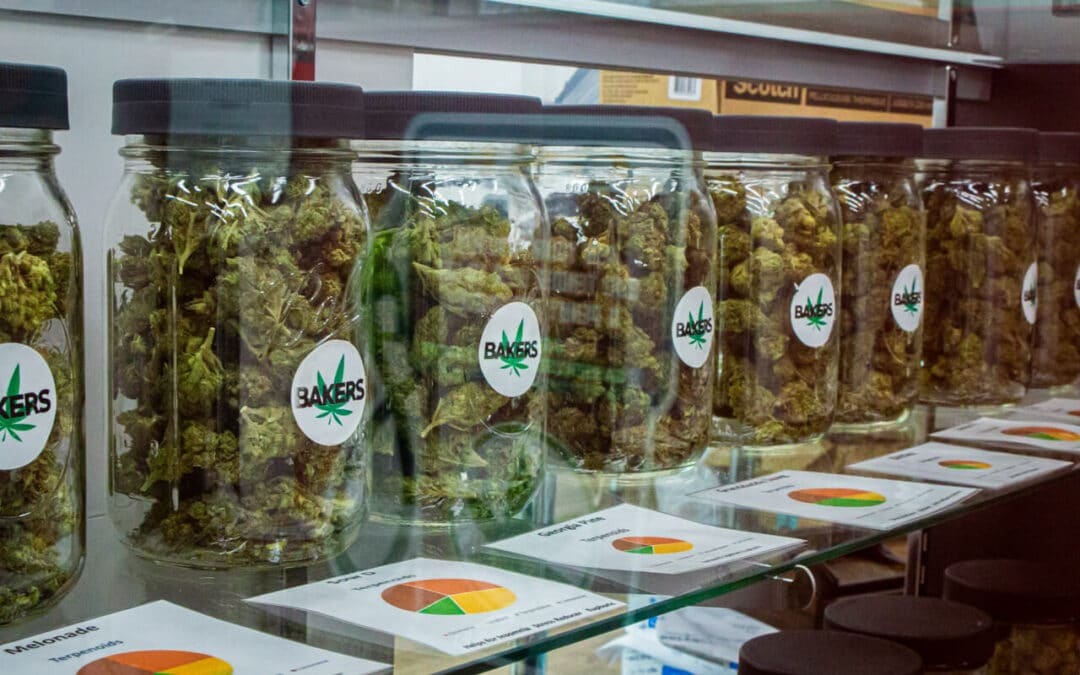
by The Real Dirt | Jul 30, 2021 | Blog, Business, Cannabis Business, Cannabis Law, Cannabis Law and Compliance, Culture, Industry News, Legalization, Medical Marijuana
In addition to THC limits, some states are likely to adopt potency-related taxes.
Many states have already established or are planning to establish new laws for the legal cannabis industry based on the level of tetrahydrocannabinol (THC) in products.
In 2020, Illinois imposed a potency-related tax for all marijuana sales, followed by New York this past March. According to ABC News, Vermont plans to limit the amount of THC in products when the state opens up its legal cannabis market in 2022, with the percentage of THC in any amount of recreational pot set at 30% for flower-form marijuana and 60% for concentrates.
Virginia’s new legalization law aims to give the state’s future Cannabis Control Authority the power to establish THC limits in recreational products and put a cap on THC in medical marijuana. Currently, in states where it’s legal, marijuana is taxed on the established sale price or weight. But with the new laws in Illinois and New York, more states are likely to follow their lead and adopt potency-related taxes on recreational sales.
‘Recriminalization’ at play?
While these changes in state laws are aimed at discouraging the production and sale of highly concentrated cannabis products, the idea of calculating taxes based on potency is getting some pushback. According to the National Organization for the Reform of Marijuana Laws (NORML), this is a type of “recriminalization” of sorts. “[The] consumer demand for [high-potency] [cannabis] products is not going to go away, and recriminalizing them will only push this consumer base to seek out similar products in the unregulated illicit market,” said Paul Armentano, deputy director of NORML.
According to the United Nations Office on Drugs and Crime’s World Drug Report 2021, cannabis potency has quadrupled over the past two decades, while the percentage of adolescents who perceived the drug as harmful fell by as much as 40%.
Clearly, many states are taking this increase in cannabis potency as a serious issue. In fact, some states have already begun limiting the amount of THC milligrams contained in a single serving and packaged cannabis products, while others have prohibited the use of high-potency cannabis altogether. Whether these practices help effectively reduce the production, sale or harmful use of products containing high THC levels remains to be seen.
![[Denver Post] Oklahoma is the new “Wild West of weed” — and Colorado marijuana entrepreneurs are helping fuel the green rush](https://therealdirt.com/wp-content/uploads/2021/08/TDP-L-Oklahoma-cannabis-RJS-31799.jpeg)



